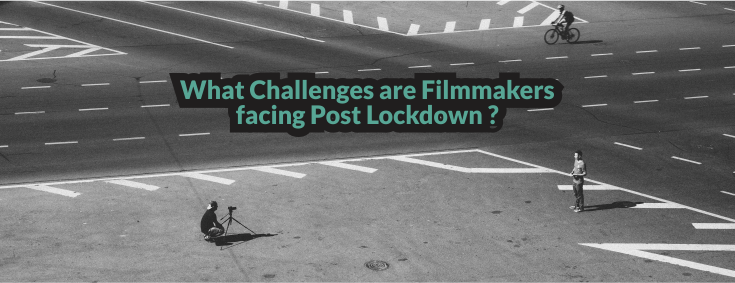In the wake of the coronavirus pandemic lockdown, the economy and society have come to a standstill. And the toughest setback has been served to the arts and entertainment industry.
After all, all other industry professionals are clamoring to get back to work because they know that there is a market out there. But after a tough second quarter and a slowly reviving economy, film consumption, especially on the big screen, is hardly a commodity that everyone is enthusiastic about.
In fact, due to the high success of OTT platforms prompted by the lockdown, people are cozying evermore up to the idea of enjoying new releases right in the comforts of the home, and content literally at their fingertips.
Sure, Cinema and content creation isn’t going to die out completely, because the world is too much hooked on virtual entertainment. But there definitely seems to be stormy seas ahead.
Braving such difficult times may even be easier for the big leagues: the high-profile, commercially successful, established filmmakers, directors, and production studios. But in light of the present circumstances, the independent filmmakers and small-time production houses are the ones who are going to suffer the most.
Here are some of the most common problems that filmmakers in India are facing post lockdown:
- Absence of financial backing: After sailing through the lockdown, investors are ever more reluctant to invest in films. The filmmakers are suffering huge losses as the film they’ve been working on for months is not receiving the financial aid they were expecting a few months back.
- Locations: The location of a film is extremely important to the premise, and often, even to the success of the film. When the location of the film is finalized, the entire cast and crew have to travel to the location for filming. But the coronavirus scare has significantly slashed the overall mobility of people. Even when public transport has been slowly opening up, people are still advised to avoid traveling for the risk of transmission. This kind of problem is compelling filmmakers to delay shoots because of the inability to move, throwing themselves in the pits of losses.
- Lack of confidence shown by distributors and cinema halls: Distributors and cinema halls are not willing to pay large sums to studios for films, as opposed to before the worldwide lockdown, due to their own decreased budget. The situation is worse for small budget films.
- Budgets for studios: Due to the various guidelines set by the Government on shooting for films, the makers are having to spend significant sums to set up preventive measures like thermal scanners, face masks, sanitizers for all their cast and crew members. This is increasing the pressure on an already meager budget.
- Dates are given by actors: As soon as lockdown eased up and Indian actors finally resumed shoots, all filmmakers have started pulling at them from different directions. The lack of dates and improper time management is ultimately becoming a hassle for filmmakers, who are each trying to get maximum attention from their actors.
It seems that Rocky times lie ahead for filmmakers, especially for small-time filmmakers. The audience isn’t willing to spend on watching a small budget movie in theatres, and this may last for a while. Unless of course, a small budget film receives an amazingly positive response, which is quite a rare phenomenon.
About Malhaar:
Malhaar Global Virtual Video Festival is a unique initiative that seeks to bring different kinds of stories and perspectives around the worldwide lockdown in the wake of the CoVid-19 pandemic. The motive was to bring a unified platform to all content creators out there, who have documented their anxieties, hopes, fears, dreams, and humanity in this unprecedented time.
Malhaar Global Virtual Video Festival has currently received over 400 film submissions across 26 countries.
All selected films will be screened simultaneously on the festival page from 18th to 27th September 2020. In addition to 24 X 7 screening of these films throughout the festival period, Malhaar will also host diverse and insightful webinars, talks, and Zoom discussions with festival directors, guests, and featured filmmakers. Participants of Malhaar will have access to all these depending upon the various plans chosen by them in ticket value.
For more details, click on https://www.matchmytalent.com/initiatives/malhaar/








